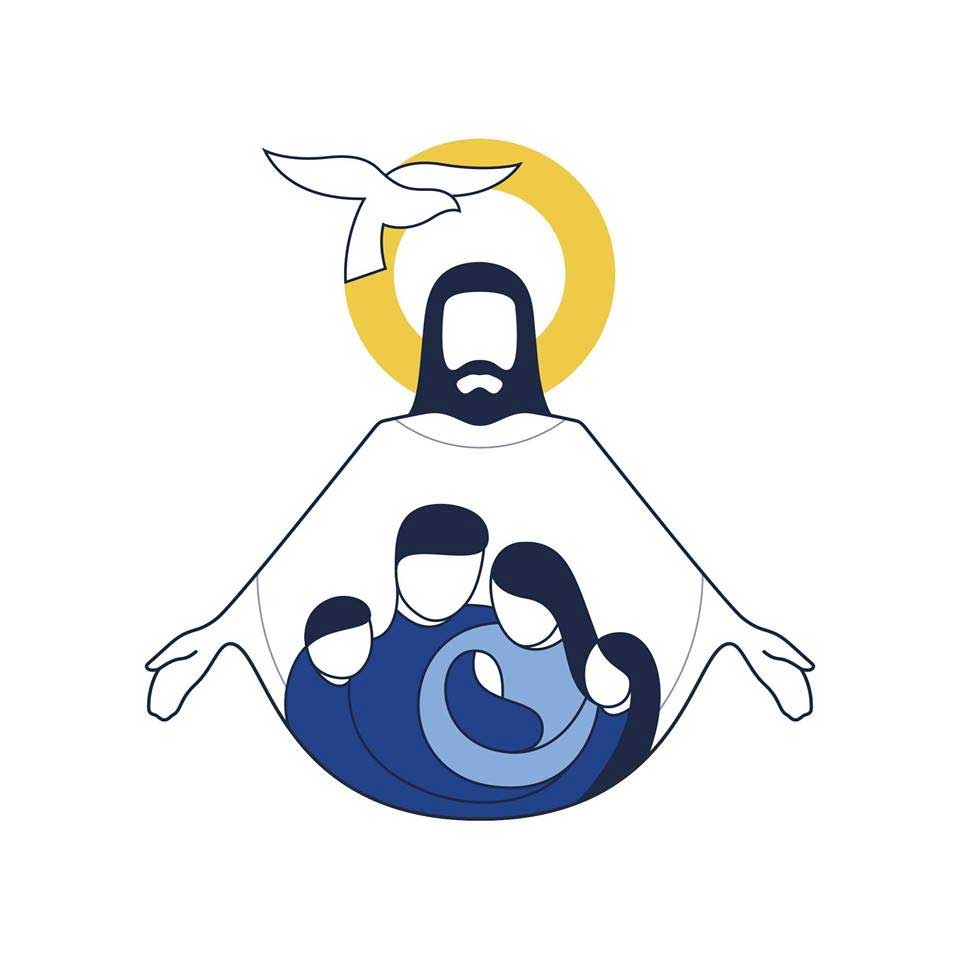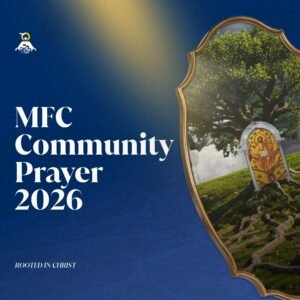FROM THE SERVANT GENERAL
OUR THEME FOR 2020
(Part 61)
BEING PROPHETIC
July 31, 2020
Today’s readings:
Jeremiah 26:1-9
Psalm 69:6-15
Matthew 13:54-58
There is a dire need for prophetic voices in the Church and in the world today. The greater the darkness and evil, the farther people turn away from God, the more important it is to have those who will speak God’s truth. These are those who are called prophets.
What is the role of prophets? They are those called to speak on God’s behalf. As God told Jeremiah, “Stand in the court of the house of the Lord and speak to the inhabitants of all the cities of Judah who come to worship in the house of the Lord; whatever I command you, tell them, and hold nothing back.” (Jer 26:2). Notice that his audience were those who came to worship.1 For Catholics, going to Mass is not proof that they are not living wicked lives.
What is God’s intent in sending a prophet? It is a warning intended to bring His people back from their evil ways, so as not to suffer the chastisement they deserve for their evil. “Perhaps they will listen and turn, all of them from their evil way, so that I may repent of the evil I plan to inflict upon them for their evil deeds.” (Jer 26:3).2 It is all about the evil that men do, as seen in this one sentence. Evil begets evil. Their evil deeds deserve God’s just chastisement.
What is God’s message? It is a dire warning, dire because the people’s evil deeds are so dire. If people will not heed God’s words, then they bring on evil upon themselves. “Say to them: Thus says the Lord: If you do not obey me, by walking according to the law I set before you and listening to the words of my servants the prophets, whom I kept sending you, even though you do not listen to them, I will treat this house like Shiloh,3 and make this city a curse for all the nations of the earth.” (Jer 26:4-6).
Notice how the Israelites had been repeatedly told to listen to and act on God’s words. They are to listen to God through the prophets He sends. They are to act by obeying God’s commands and walking according to His laws. If they do not, their house or their nation will collapse.
Unfortunately, God’s people, much like today, do not want to heed God’s voice and warnings. They disdain prophets who rebuke them for their sins. They do not want to hear about what evil is to happen to them if they persist in their sins. As it was then, “the priests, the prophets, and all the people heard Jeremiah speaking these words in the house of the Lord” (Jer 26:7), and they said, “Why do you prophesy in the name of the Lord: ‘This house shall become like Shiloh’?” (Jer 26:9a).
Now prophets, though they speak in God’s name, are not perfect. “God, you know my folly; my faults are not hidden from you.” (Ps 69:6). As with all of God’s human instruments,4 they are themselves sinful. But they are used by God anyway. Being sinful does not mean they have no right to speak about wrongs.
And the intent of prophets is not to shame people,5 but to evoke a response of turning back to God. “Let those who wait in hope for you, Lord of hosts, not be shamed because of me. Let those who seek you, God of Israel, not be disgraced because of me.” (Ps 69:7). The purpose of prophets is not to drive people away, but to bring them back to God. The purpose of prophets is not to bring people down, but to lift them up. Unfortunately, many times, because of the hardness of heart of people, they are provoked to a negative response. Such was the case even with Jesus. The people were astonished at his teaching, but still “they took offense at him.” (Mt 13:57a).
So what can happen to prophets? They can be considered pretentious, as was the case with Jesus. The people were amazed at him, saying, “Where did this man get such wisdom and mighty deeds?” (Mt 13:54b). But because they saw Jesus as just the carpenter’s son, as just one ordinary person among them (Mt 13:55-56), as not being among the scribes and religious leaders, they considered him pretentious, as acting with greater importance than they thought he actually had.
This is the case too today. If laypeople act as prophets, they may not be taken seriously. And unfortunately, this happens with those who are closest to them, the relatives and townspeople.6 As Jesus said, “A prophet is not without honor except in his native place and in his own house.” (Mt 13:57b). If so, a prophet can be subjected to insult and disgrace. They serve God, but what do they get? “For it is on your account I bear insult, that disgrace covers my face.” (Ps 69:8). And if their own brethren do not like what they are proclaiming, they are shunned. “I have become an outcast to my kindred, a stranger to my mother’s children.” (Ps 69:9). It could be worse, as has been the fate of prophets of old. In Jeremiah’s case, for speaking what God commanded his to speak, “the priests, the prophets, and all the people laid hold of him, crying, ‘You must die!’” (Jer 26:8).
How then should prophets act? What is their proper stance? First, they should be zealous for God and for the righteousness of God, even if they will suffer rejection and scorn.7 “Because zeal for your house has consumed me, I am scorned by those who scorn you.” (Ps 69:10). And mind you, if people reject those who are authentically sent by God, then they are rejecting God Himself.8 But for the prophet, it is clear. Just obey God and accept whatever consequences such obedience can bring.
Second, they should help ensure that being appointed and sent by God does not make them puffed up with pride. In fact, they should be humbled, knowing their unworthiness to be God’s mouthpieces. They should do as David did: “I humbled my spirit with fasting” (Ps 69:11a).
Third, as they look to the sins of those they will be addressing, they recognize their own poverty in spirit. “I clothed myself in sackcloth” (Ps 69:12a). They know they themselves are sinful, but now they are to talk to others about these others’ sins.
Fourth, they always look to God for help and deliverance. “But I will pray to you, Lord, at a favorable time. God, in your abundant kindness, answer me with your sure deliverance.” (Ps 69:14). When they thus pray, they have the faith and the hope that God will indeed deliver them. They know they will still be scorned, made a byword, gossiped about and made the butt of drunken songs, but God will not let them sink into the mire. “Rescue me from the mire, and do not let me sink. Rescue me from those who hate me and from the watery depths.” (Ps 69:15). Indeed, they look to God to rescue them from the floods that buffet them, and not allow them to collapse into the mire.
Finally, they just obey God and prophesy, whether people take heed or not. They may not see the desired results, but they just do what they are told to do. Even for Jesus, “he did not work many mighty deeds there because of their lack of faith.” (Mt 13:58). It is not about the faith of others and their responses, but about their own faith in the God who sends them.
1 The prophet may also be called to speak to a pagan world, as was the case with Jonah in Nineveh.
2 God inflicting evil is a manner of speaking, as God does not do evil but only good. As such, the people will experience evil, but God’s intent is always good, to bring them back to Him.
3 Shiloh was one of the main centers of Israelite worship during the pre-monarchic period, as the Tabernacle and the Ark of the Covenant were kept there. In a battle at Ebenezer, the Ark was captured by the Philistines. Soon after, Shiloh was destroyed.
4 Except for the Blessed Virgin Mary.
5 Well, perhaps a little shaming could also be helpful. Indeed, those who turn away from a loving God should be ashamed of themselves.
6 Or in our case, community members or other Catholics in the Church.
7And indeed, most probably they will face negative reactions and even scorn.
8 See Luke 10:16.








